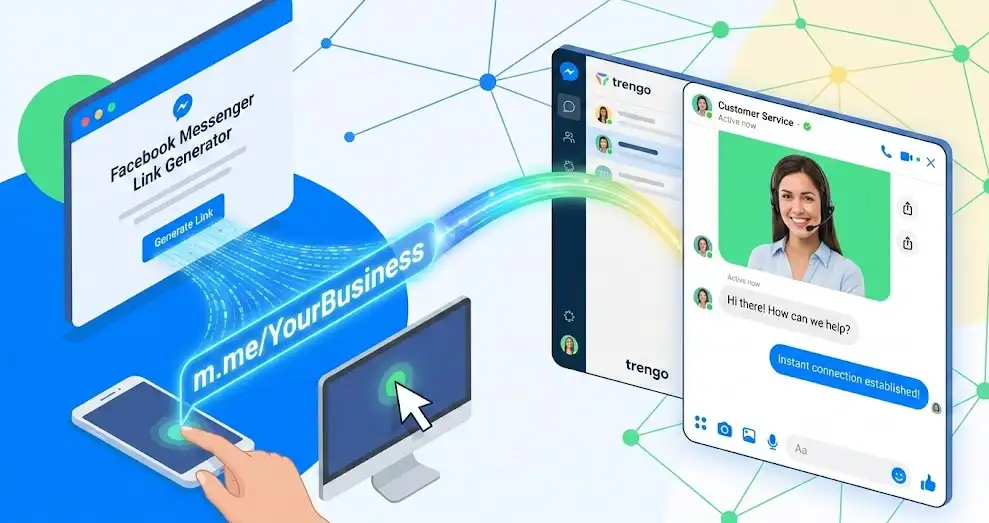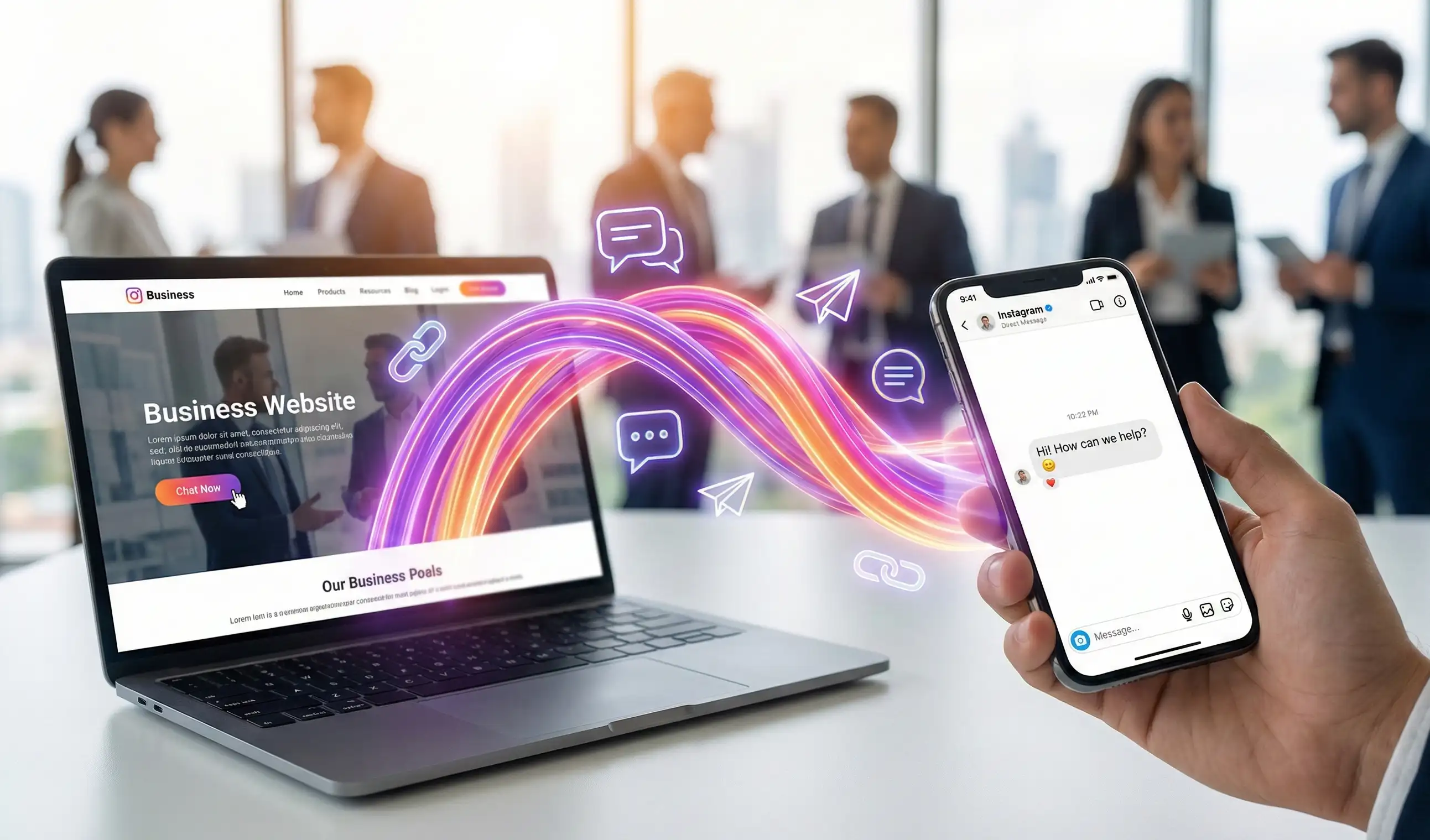Whenever I try to convince a business owner that they should start using WhatsApp for sales, I always tell them a story about the corner store at the end of my street.
The Nightshop — the actual name of the corner store — has saved my life more times than I can count. Or, to be more exact, it has saved me from many late nights without a fitting snack.
What I like most about the Nightshop is how easy it is to get in touch with them. They don't have a Facebook account, an email address, or even a website. And they don't need it. Because I can always, no matter at which hour, reach them via WhatsApp.
This way of communicating gives me the sense that I have a personal relationship with the store clerk. The conversations feel very similar to the ones I have with my friends on WhatsApp: friendly, informal, and fast-paced. Aside from the fact that the clerk shows up at my door with a bag of Doritos when the conversation ends.
Being able to simply shoot a text is literally the most comfortable digital customer experience I've ever had. But when I look around, there are so few other businesses providing the same service.
Why businesses should start selling on WhatsApp
Let's talk numbers. Companies share that use WhatsApp for sales enables them to:
- Make 20% of customer interactions via WhatsApp result in sales.
- Increase their customer base by 10%.
- Increase their overall sales by 15%.
- Increase new client contacts by 40%.
WhatsApp has turned into one of the most important communication channels worldwide. Currently, it has an active user base of over 2 billion people.
In the last years, consumers have grown accustomed to talking to companies on the app too. And with great results. Conversations on WhatsApp are fast, convenient, and informal. Giving you the opportunity to establish a personal relationship with your customer.
And in sales, a strong relationship with your customers is everything.
How to successfully use WhatsApp for sales
If you want to get started with selling on WhatsApp, you'll need to take a couple of things into consideration. Below, you'll find four success factors to be successful.
Build relationships
The store I told you about earlier isn't the only one of its sort in my neighborhood. There are at least four of them, and they all sell the same stuff. Still, I always visit the Nightshop.
That's because good and personal customer service is important to me, and that's the same for many other consumers. Research shows that 65% of today's consumers are more likely to order when there is personal customer service.
Speed is everything
As consumers, the world is at our feet. With a click of the button, we can get our hands on anything we want. A new dishwasher, a goldfish, a lawnmower — click now, receive tomorrow.
We're spoiled. And we expect the same high speed when it comes to customer communication. We expect companies to respond to our questions just as fast as our friends do on WhatsApp. Even if those companies happen to be out of office, highly understaffed, or simply just busy.
Once the WhatsApp conversation starts feeling like an email interaction, all the magic of using WhatsApp as a customer communication channel is gone with the wind. The key is to keep it conversational and fast.
Get the right tooling in place
The corner store simply uses the WhatsApp Business application. That's because he either works alone or with one employee at maximum. And it works fine for him.
The WhatsApp Business app has its limitations, though. The most important one is the fact that you cannot use the WhatsApp Business app with multiple users. In case you have a lot of conversations and need a team to answer them, you'll have to pass around the phone when using the app.
Luckily, there's a solution here. With the WhatsApp Business API, you can work together on managing WhatsApp Business conversations with your team. The API doesn't come with its own interface, which means you'll have to use it via a customer service platform.
Learn more about the WhatsApp Business API.
Automate, automate, automate
In order to be efficient and fast, you can't do without the right automation. The right automation will help you save the time you need to give your customers the personal service they want. Here are some options:
- Quick replies: Use templated messages to quickly answer frequently asked questions. Check out some quick reply templates here for inspiration.
- Auto-replies: Whether you're out of the office or just not able to reply fast, make sure your customers still get an instant reply by setting up an auto-reply. Learn how to set it up and use some of our templates here.
- Chatbots: The ultimate cheat is setting up a WhatsApp chatbot. This digital team member will help you answer questions, forward customers to the right agent, and even collect leads.
Inspiration: How other companies sell on WhatsApp
So, how are other businesses using WhatsApp for sales? Let's have a look at some inspiring examples.
Example 1: Hubo
Hubo, a Dutch retail company with more than 130 stores nationwide, also started to use WhatsApp to offer personal service. But what started out as a channel to simply answer questions, quickly turned into a full-blown sales channel. At this point, they receive more than 500 orders per day via WhatsApp.
https://www.youtube.com/watch?v=TNoT6eIz6mI
What makes Hubo's story special is that they have one number on their website, via which you can get in contact with each of their 130+ stores. Sounds chaotic, but they have found a smart way to get it done. By using a location finder, customers are automatically forwarded to the right Hubo store.
This makes it easy for customers to get in contact with the right store, while Hubo only has to communicate one phone number in their marketing materials.
Example 2: Karadish Kitchen
Samar al-Mallah, a Syrian refugee who currently lives in Istanbul, built her entire cooking business via WhatsApp.

Every day, she posts the recipe with accompanying pictures of her dish for that day in a closed WhatsApp group. If you like what you see, you can place your order right then and there. She became popular so fast that she quickly had to put a cap on the WhatsApp group.
Currently, there is only room for a maximum of 150 people in there. And her kitchen only delivers food in Istanbul. So if you want to place an order, you may be in for a challenge.
In the meantime, she has started another WhatsApp group in which she helps other Syrian women to start a cooking business of their own.
Example 3: Muntstad
Muntstad is a Dutch automotive brand. On their website, which serves as their digital showroom, you can easily start a WhatsApp conversation. You can either talk to their sales or after-sales team.
This company is obviously incomparable to the corner store I mentioned earlier. And no, you're probably not going to sell a car directly via a WhatsApp conversation. But it's the ideal way to get your foot in the door and establish a personal relationship. It's less formal than an email or even a phone call.

Muntstad is a big company. They have multiple customer-facing teams using the same WhatsApp number. As you might imagine, getting all the conversations to go to the right teams and the right people can be tricky.
That's why they have set up rules based on keywords to ensure that messages automatically are forwarded with the right teams. 💡
Learn more about how Muntstad offers fast and efficient service via WhatsApp
Example 4: YOOX Personal Shoppers
YOOX is a company that offers personal shopping. As an experiment, they decided to start offering this service — conversational commerce, as they call it — via WhatsApp to their so-called EIP (Extremely Important People).

And with great success. Customers were happy with this service via a messaging app and even provided some unrequested feedback, such as: "Really forward-thinking", or "I love receiving information from you this way."
Needless to say, YOOX is currently still going strong on WhatsApp after this experiment.
Conclusion
Consumers are on messaging apps, so your business should be on there too. Whether you're selling cars or food out of your kitchen. Using WhatsApp for sales is a great opportunity to build personal relationships with your customers and sell more.
Want to get started right away? Read our Ultimate Guide on WhatsApp Business Success to learn everything you need to know and get off to a flying start.




.png)











